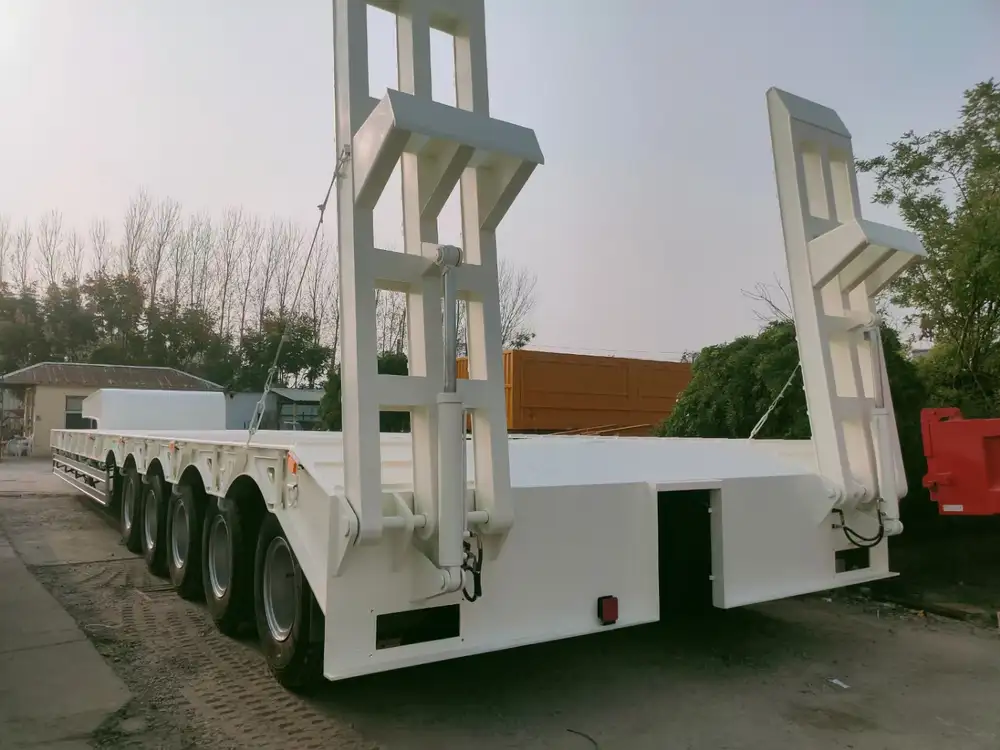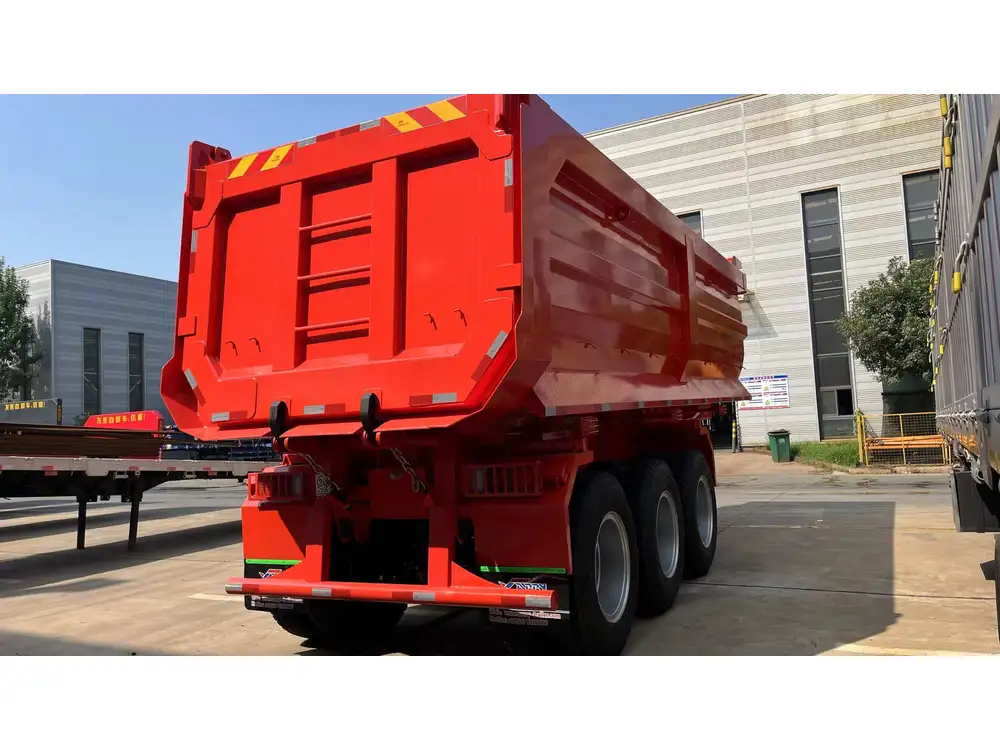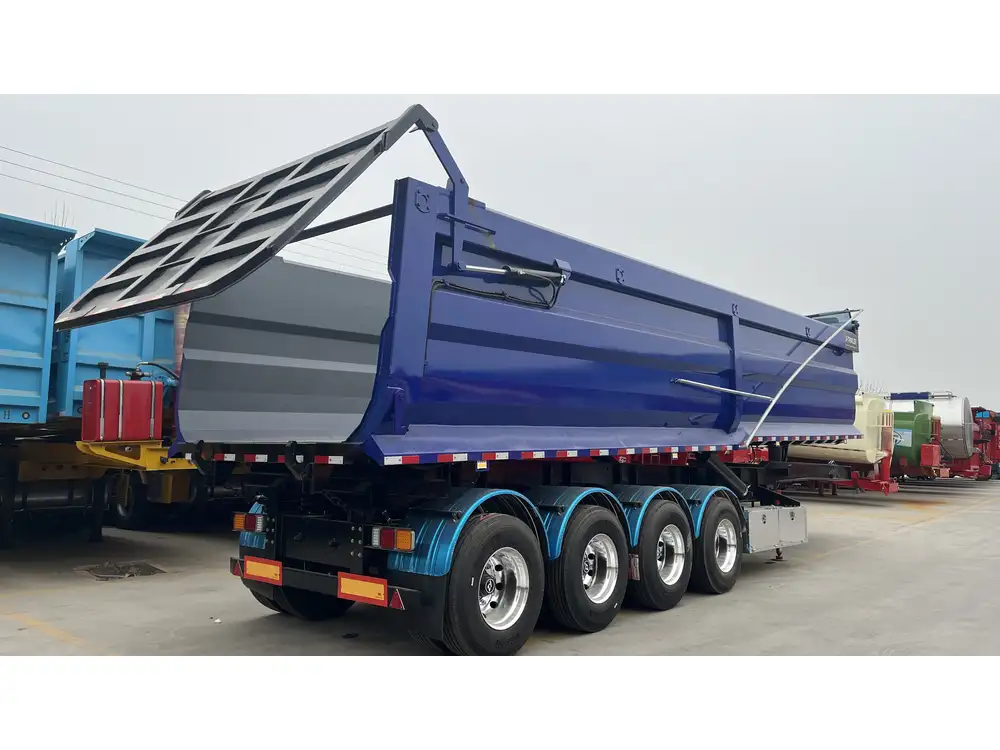Corrosion is a pervasive problem that can undermine the integrity and longevity of your dump trailer. For manufacturers and users alike, understanding how to effectively protect these trailers is essential for maintaining functionality and aesthetics. This article delves into a multitude of protective measures, methods, and products suitable for safeguarding your dump trailer against corrosion, ensuring you maximize its lifespan and performance.
Understanding Corrosion: The Enemy of Your Trailer
Corrosion occurs when metal reacts with moisture, oxygen, and other environmental factors, leading to rust and deterioration. Dump trailers, often exposed to harsh conditions—such as salt, chemicals, and water—are particularly vulnerable. Let’s dissect the primary contributors to corrosion in dump trailers:
| Contributors to Corrosion | Effects |
|---|---|
| Moisture | Accelerates rust formation |
| Salt | Causes rapid deterioration of metal |
| Chemicals | Reacts with trailer materials, promoting rust |
| Lack of Maintenance | Accumulates debris and moisture, fostering corrosion |
Understanding these causes allows us to take informed steps in prevention and protection.
Regular Cleaning: The First Line of Defense
To combat corrosion effectively, regular maintenance is paramount. Implement the following cleaning protocols to minimize the risk of corrosion:
- Wash Frequently: Routinely wash your dump trailer, especially after hauling corrosive materials such as salt or chemicals.
- Use the Right Products: Opt for pH-neutral detergents to avoid damaging protective coatings.
- Rinse Thoroughly: Ensure all residues are washed away post-cleaning.
- Inspect and Clean Underneath: Corrosion often starts under trailers, where debris accumulates. Use a pressure washer for thorough cleaning.

Cleaning Checklist
| Task | Frequency |
|---|---|
| Exterior Wash | Monthly |
| Underbody Inspection and Cleaning | Bi-Monthly |
| Rust Inspection | Every Haul |
By adhering to a cleaning routine, you effectively disrupt the corrosion process and prolong your dump trailer’s life.
Protective Coatings: A Shield Against Rust
Applying protective coatings forms a barrier against corrosive elements. Evaluate the various options available and choose what aligns best with your trailer’s needs.
Types of Protective Coatings
- Galvanization: A process where a zinc coating is applied to steel surfaces. This sacrificial layer prevents rust as the zinc oxidizes before the metal.
- Powder Coating: A dry finishing procedure that offers various colors and finishes. It’s more durable than traditional paint and resistant to scratches, chemicals, and corrosion.
- Rust Inhibitors: These products chemically prevent corrosion at the metal surface. They can often be sprayed onto existing coatings for added protection.

Comparison of Coatings
| Coating Type | Durability | Cost | Best Use Case |
|---|---|---|---|
| Galvanization | High | Medium | New trailer protection |
| Powder Coating | Very High | High | Appearance-oriented trailers |
| Rust Inhibitors | Moderate | Low to Medium | Existing trailers needing restoration |
Choosing the right coating can drastically shield your trailer from environmental aggressors.
Inspections and Repairs: Nip Corrosion in the Bud
Regular inspections help assess the condition of your dump trailer and identify corrosion at its early stages. Prioritize the following during inspections:
- Check for signs of rust on both the exterior and underbody.
- Examine welds and joints, which are susceptible to moisture accumulation.
- Look for chipped or damaged coatings, as exposed metal is prone to corrosion.
Repair Steps
- Sand Away Rust: Use sandpaper or a power sander to remove any surface rust.
- Apply Rust Converter: A rust converter will halt any further corrosion by chemically converting rust into a stable compound.
- Reapply Protective Coating: Once repairs are made, always reapply a protective coating to ensure long-lasting defense.

Inspection Checklist
| Inspection Task | Frequency |
|---|---|
| Visual Inspection | Monthly |
| Detailed Rust Check | Quarterly |
| Coating Condition Assessment | Bi-Annually |
By adopting a rigorous inspection routine, you mitigate the escalation of corrosion-related issues.
Best Practices for Usage: Operating with Care
The way your dump trailer is used directly influences its susceptibility to corrosion. Implement the following best practices:
- Avoid Hauling Corrosive Materials: Whenever possible, refrain from transporting materials that may accelerate rust, such as salt, acidic liquids, or chemicals.
- Store Properly: When not in use, park your trailer in a well-ventilated area, covered by a tarpaulin or under a roof if possible.
- Check Weather Conditions: In extreme weather, store your trailer indoors or utilize protective coverings to minimize exposure to rain, snow, and humidity.
Usage Best Practices Summary
| Best Practice | Explanation |
|---|---|
| Material Management | Avoid hauling materials that promote corrosion |
| Proper Storage | Park in well-ventilated, dry areas |
| Weather Awareness | Be proactive in safeguarding the trailer during storms |
Implementing these simple practices can significantly limit exposure to corrosive elements.

Choosing the Right Material for Your Trailer
Dump trailers are manufactured from various materials, and selecting the right one is crucial in mitigating corrosion risks. Here’s a look at commonly used materials and their durability against corrosion:
Material Comparison
| Material Type | Corrosion Resistance | Weight | Cost | Best Use |
|---|---|---|---|---|
| Steel | Moderate | Heavy | Low | General purpose and durability |
| Aluminum | High | Lightweight | High | Frequent use in corrosive environments |
| Stainless Steel | Very High | Heavy | Very High | Ideal for extreme conditions |
Investing in corrosion-resistant materials can save long-term costs associated with repairs and replacements.
Investing in Corrosion-Resistant Accessories
Beyond the structure of your dump trailer, consider the use of corrosion-resistant accessories. Hardware such as:
- Hinges and Latches: Upgrade to stainless steel options that resist rust.
- Wheels and Axles: Invest in galvanized or aluminum wheels and axles designed for harsh conditions.
- Tarps and Covers: Use high-quality, waterproof covers to protect your trailer from environmental exposure.

Accessory Durability Table
| Accessory Type | Material Options | Expected Lifespan |
|---|---|---|
| Hinges and Latches | Stainless Steel, Galvanized | 10+ years |
| Wheels | Aluminum, Galvanized | 5-10 years |
| Tarps and Covers | Waterproof Fabric | 3-5 years |
Investing in quality accessories enhances your trailer’s overall durability against corrosion.
Summary: Building a Comprehensive Corrosion Defense
In essence, protecting your dump trailer from corrosion is a multifaceted endeavor that encompasses diligent maintenance, protective coatings, regular inspections, optimized usage practices, and careful material selection. A proactive approach will keep your trailer functioning optimally while reducing unnecessary costs associated with repairs or replacements.
Implement the following comprehensive strategy:
- Routine Cleaning & Inspection: Establish a strict cleaning schedule and regularly assess your trailer’s condition.
- Use Protective Coatings: Apply suitable coatings to all susceptible surfaces.
- Adopt Best Usage Practices: Ensure to follow guidelines that limit exposure to harmful materials and conditions.
- Select Corrosion-Resistant Materials: Choose materials and accessories that provide maximum durability against corrosion.
This methodical approach ensures your dump trailer remains a reliable and efficient asset in your operations for years to come.



